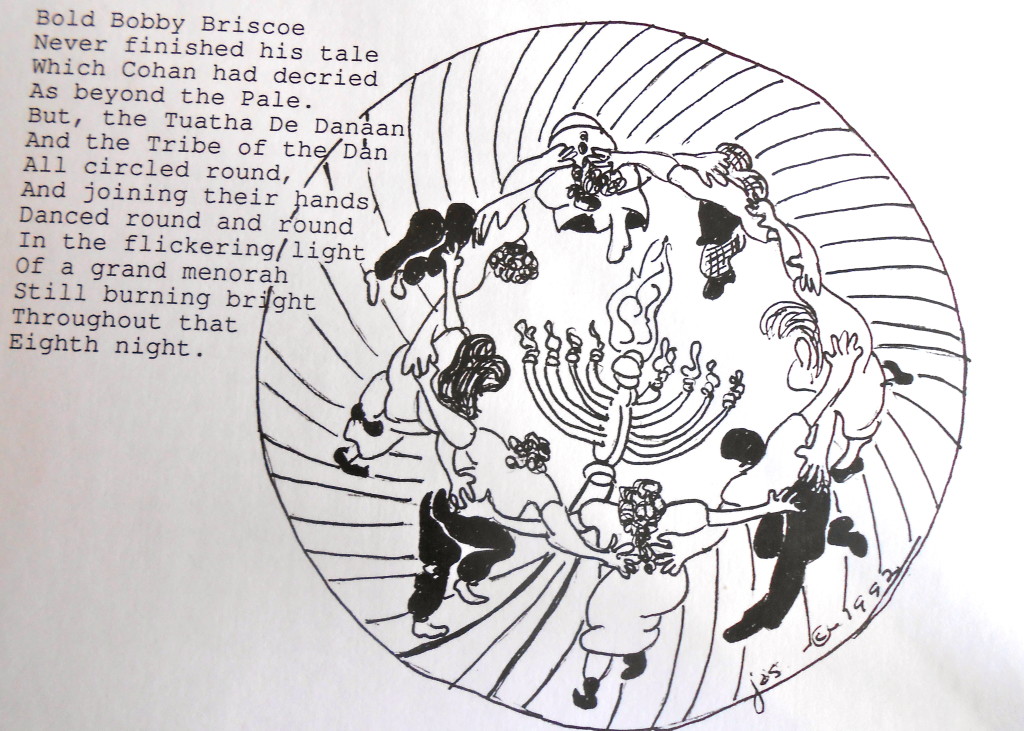Not long ago, I was listening to Krista Tippet’s National Public Radio show, On Being. Tippet was interviewing Joy Ladin, a transgender individual, about her journey between genders. Ms. Ladin discussed her acute observations of the outward ways in which gender is expressed–of her need, before coming to terms with her inner self, to model the observed masculine and avoid what she thought was feminine and then, when she made the change from male to female, the need consciously to observe and model the outward ways in which women move and express themselves. (As an example, she noted her observation that women tend to use their hands when speaking and men tend not to.)
I know very little about transgender issues (other than the threat to transgender people by those who hate). I would never be so presumptuous as to write about the matters they must deal with emotionally, psychologically, physically, or societally, and I have not raised the Joy Ladin interview here in order to do so. (I do recommend that people listen to the interview, linked above, to gain some insight.) But, while it makes perfect sense that, in Ms. Ladin’s circumstances, she looked to outward cues to determine how to pass or function as one gender or the other in society, it troubles me that society creates such narrow strictures of what constitutes masculinity and femininity. And, as I listened to Ms. Ladin speak, it reminded me of how these strictures tend to affect even the ways in which writers deal with characters in fiction.
Some writers express insecurity about writing from the point of view of the opposite sex. I am reminded of one male author’s delighted amazement at my ability to embody male as well as female characters in my novel, Tinker’s Damn.
I am also reminded of a prospective agent’s reaction to another novel of mine in which the female protagonist was an IRA bombmaker trying to get a former cohort to observe a truce with the British. That agent asked: Does she ever wear a dress? Does she ever think about marriage or wish she had children? –As if, in the middle of an encounter that will affect world events, the character should stop and ruminate on wearing dresses and having kids? Indeed, one of the reasons I wrote the novel was to create a female counterpart to the male anti-heroes of the genre–someone of tough mind and integrity, and an ability to handle hairy situations. Why, in an international thriller, should such a female protagonist, any more than her male counterparts, spend time considering her personal domestic issues?
When, in irritation, I mentioned the agent’s questions to a writer-friend who happens to be a Lesbian, she replied, “well, you could just go all the way and make her a Lesbian.” I’m sure this was an off-hand reply, meant either with a bit of humor or without giving great thought to it. But, I have wondered since whether my friend realized that her statement was feeding into a stereotype of what it is to be gay or straight, as well as male or female.
There are all these exasperating myths out there of what it is to be manly or womanly: men like to fight, women like to talk; women are the nurturers, men are the aggressors; men want to solve problems, women want someone to just listen; men are logical, women are intuitive.
I believe that our common humanity comes FIRST. The rest are just trappings and societal constructions. Fiction can reflect and reinforce these trappings and constructions, or it can be a tool to change them. And not only by writing stories about characters fighting the strictures society places upon them, but by creating characters that, by their mere existence, defy those societal definitions. (To paraphrase the film Field of Dreams, if you write them, they will come?)
I believe that human motivations are universal. You can create any kind of man and any kind of woman and still have them be believable so long as you capture the essential humanity that will govern their response to their given circumstances.
Humanity comes before gender.

